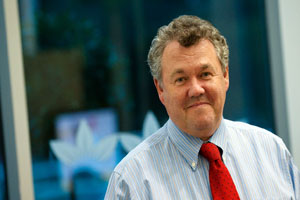
A culture of greater—not less— transparency in tobacco and tobacco-industry funded research is needed if society is to realize the reduced risk potential of e-cigarettes and other next-generation products.
This is what Chris Proctor, chief scientific officer of British American Tobacco (BAT), told delegates on Friday at the Global Forum on Nicotine (GFN) in Warsaw, Poland. “I would like to urge editors like Scott Leischow, editor of Tobacco Regulatory Science, to help ensure the flow of scientific knowledge,” he added.
Tobacco Regulatory Science recently adopted a policy to not consider manuscripts funded or conducted by or on behalf of the tobacco industry—a decision that, says BAT, seems at odds a claim to “fully recognize the view that good science should be made available without restriction.”
Many in the public health community believe that e-cigarettes represent an historical opportunity to save millions of lives and drastically reduce the public-health burden of smoking-related diseases. Society needs to be able to trust the science and research that comes out of the industry driving this revolution, and the regulators that oversee it. According to BAT, this requires fostering a culture of collaboration, cooperation and transparency.
“Product innovation is happening so quickly that it is essential to have fundamental scientific information about these products and how they are used,”’ Proctor said. “The best way to achieve this is to ensure that scientific information for all stakeholders be produced to high standards and presented in a transparent way.”
E-cigarettes and other next generation products are evolving so quickly that scientists need to constantly develop new tests to evaluate them. “We need to be able to rely on manufacturers to provide useful data and to publish it in order to support their products,” Proctor said. Regulators are always looking for more information and they should be able to depend on the peer-review process to get it.
Peer-review is not perfect, and that needs to be addressed, but this should not mean that good science never sees the light of day. Peer review is after all an ancient system operating in a modern world. As Jeffrey Flier, Dean of Harvard Medical School, said in a recent commentary in The Wall Street Journal, we may well need “a science of how to publish science.”
The potential that e-cigarettes and other products have to save millions of lives should not be lost in a zeal that sees a desire to destroy tobacco-related disease mixed up with a desire to destroy an industry.
Many in the public health community believe e-cigarettes offer great potential for reducing the public health impact of smoking. Public Health England, an executive body of the U.K. Department of Health, recently published a report saying that e-cigarettes are 95 percent safer than cigarettes. The Royal College of Physicians have said that the public can be reassured that e-cigarettes are much safer then smoking and that they should be widely promoted as an alternative to cigarettes. Cancer Research U.K., Action on Smoking and Health and the British Heart Foundation are also of the view that e-cigarettes are substantially less harmful than smoking.











